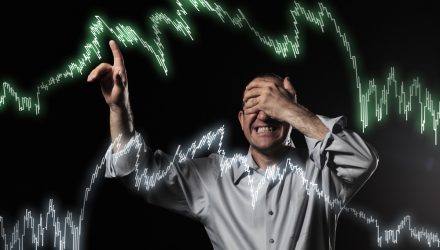Investors can consider factor investments like the ActiveBeta exchange traded fund strategies to help diversify a portfolio.
In the recent webcast, ActiveBeta®: Capturing Performance Drivers in Today’s Uncertain Market, Steve Sachs, Head of Capital Markets, ETFs, Goldman Sachs Asset Management; Osman Ali, Portfolio Manager, Quantitative Strategies, Goldman Sachs Asset Management; and Adam Grossman, Chief Investment Officer, Global Equity, RiverFront Investment Group, helped look for ways to diversify away from potential risks associated with traditional market cap-weighted exposures, notably factor-based strategies that follow strict rules-based indexing methodologies to enhance a portfolio and limit potential downside risks.
Investors currently face some unprecedented risks in these uncertain times. The coronavirus pandemic or COVID-19 outbreak has been highly contagious, with 20% of cases showing more severe reactions. Consequently, about 95% of global economies have been put under lockdown to quarantine the contagion, and the U.S. initial jobless claims have surged to over 33 million since mid-March.
The sudden disruption to day-to-day life has caused the S&P 500 to quickly plunge into a bear market, with the CBOE Volatility Index, a measure for market fear, touching an all-time high of 82.7, reflecting the concerns over the scope of the coronavirus impact on the economy and strained market illiquidity. Other market segments have touched record lows as well, with benchmark U.S. Treasury yields dipping below 1.0% for the first time and the May WTI Crude Oil contracts closing at a negative price for the first time.
“Physical separation policies appear to be working but have simultaneously unleashed a sudden global economic deceleration. In our opinion, the recovery will be similar to the decline… idiosyncratic and discriminant,” according to Goldman Sachs Asset Management.
As a better alternative to hedge against ongoing risks and potentially participate in a market rebound, Goldman Sachs argued that investors could turn to factor-based index strategies, such as the ActiveBeta equity ETFs. These smart beta ETFs seek the outperformance potential of active investing but with the lower cost and efficiency of passive investing. The Goldman Sachs ActiveBeta equity ETF series includes:
- Goldman Sachs ActiveBeta® U.S. Large Cap Equity ETF (NYSEarca: GSLC)
- Goldman Sachs ActiveBeta U.S. Small Cap Equity ETF (GSSC)
- Goldman Sachs ActiveBeta Emerging Markets Equity ETF (GEM)
- Goldman Sachs ActiveBeta International Equity ETF (GSIE)
- Goldman Sachs ActiveBeta Europe Equity ETF (GSEU)
- Goldman Sachs ActiveBeta Japan Equity ETF (GSJY)
The strategists explained that each ActiveBeta ETF follows a performance-seeking methodology that aims to acquire stocks based on four well-established attributes of performance, including value, momentum, quality, and low volatility, in a transparent and benchmark-aware way. Additionally, the ETFs are among the most competitively priced ETFs on the market, with GSLC coming in at a low 0.09% expense ratio.
Good value reflects stocks that are priced low relative to company fundamentals, which demonstrate under-appreciation by the market and tend to benefit as their price moves towards fair value over time.
Strong momentum tries to capitalize on the fact that new information is not fully reflected in stock prices instantaneously. Stocks that have performed well recently tend to exhibit some persistence as new information is priced in over time.
For every dollar of assets they have, high-quality companies tend to generate more profits than lower-quality companies. This efficient use of assets tends to be rewarded over time.
Lastly, low-volatility or stocks with lower swings in price may benefit by losing less during downturns and compounding those savings over time.
“Smart Beta Strategies give investors access to Both Market Beta and Factor Betas, potentially leading to higher returns over time,” according to Goldman Sachs Asset Management.
The ActiveBeta ETF series incorporates a multi-factor or combined factor approach for a more diversified investment portfolio since individual factor returns vary over time, and no one is capable of perfectly timing the markets. For example, the Value style may have outperformed in 2014, but the factor was also the worst performer in 2015. The various factors also exhibit a relatively low correlation to one another.
So far, over the first quarter of 2020, four of the six ActiveBeta Indices outperformed their market cap-weighted benchmarks. For example, the Goldman Sachs ActiveBeta U.S. Large Cap Equity Index outperformed the S&P 500 by 75 bps, and the Goldman Sachs ActiveBeta International Equity Index outperformed the MSCI World ex USA Index by 16 bps. Following strong performance over the past two years, Quality stocks continued their outperformance as investors favored profitable companies. Additionally, last year’s factor leader Momentum contributed to underweights to the financial and energy sectors, which helped these strategies positively this year.
Financial advisors who are interested in learning more about factor-based investing can watch the webcast here on demand.








